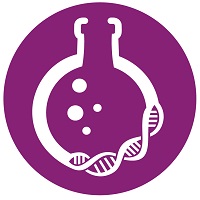Back
Bioanalytics – Biomolecular
Session: Rapid Fire: Beyond Legacy Therapeutics - Navigating the Path Less Traveled (BM)
Acceptable Level of Precision in qPCR Assay Validations
Monday, October 17, 2022
3:30 PM – 3:45 PM ET
Location: 253 B

Mark C. Wissel, PhD
Director, R&D
Eurofins-Viracor
Lenexa, Kansas
Rapid Fire Speaker(s)
qPCR is a technology that has been around for decades and has been recently increasingly used in many bioanalytical laboratories to support novel modalities like cell, gene, and RNA based therapies. With implementation of qPCR as a bioanalytical platform and no current established regulatory guidance on assay validation for qPCR, there remains a need to understand satisfactory acceptance criteria on basic assay characteristics including assay precision. The current FDA guidance on bioanalytical method validation is applicable to ligand binding and chromatographic assay and thus leaves room for interpretation on acceptable CVs for qPCR assays that are often used for biodistribution or cellular kinetics as part of understanding pharmacokinetics of these novel therapies. In this presentation, we will discuss the importance of determining appropriate acceptable levels of assay precision for qPCR validations and present data to demonstrate the importance of understanding precision in qPCR assays.
Learning Objectives:
- Upon completion, participants will be able to understand the challenges of developing and validating qPCR assays in regulated bioanalysis
- Upon completion, participants will be able to understand the best practices and strategies for developing assays with acceptable precision based on the assay context of use.
- Upon completion, participants will be able to appreciate a case study that demonstrates the importance of acceptable precision in qPCR assays.


